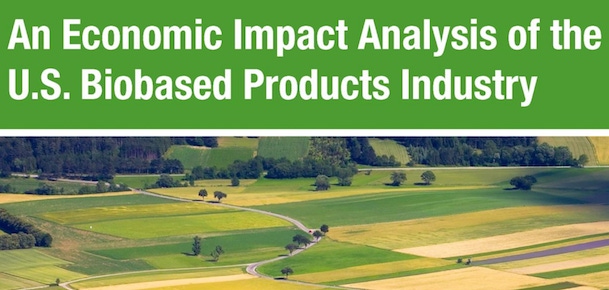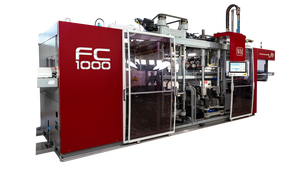October 4, 2016

Although several studies have been published on the contributions of the biobased products industry to the European and global economies, little was shown about the impacts in the U.S. A new report released by the U.S. Department of Agriculture (USDA) yesterday has remedied that particular problem; called the Economic Impact Analysis of the U.S. Biobased Products Industry, it meticulously examines and quantifies the effects of the U.S. biobased products industry on each state and the District of Columbia. Its findings are heartening: according to this report, the biobased products industry contributed $393 billion and 4.2 million jobs to America's recovering economy. The report also indicates that the sector grew from 2013 to 2014, creating or supporting an additional 220,000 jobs and $24 billion over that period.

The report was released by Agriculture Secretary Vilsack, who identified the biobased economy as one of the four pillars that support the rural economy in the US.
"America has an appetite for everyday products-including plastic bottles, textiles, cleanings supplies and more-made from renewable sources, and that demand is fueling millions of jobs, bringing manufacturing back to our rural communities, and reducing our nation's carbon footprint,” he declared. “As this sector is strengthening, so is the economy in rural America, where this year the unemployment rate dropped below six percent for the first time since 2007. USDA is proud to see such strong returns on our investment into the biobased products industry."
In addition to their contribution to the rural economy, innovative biobased materials also have key environmental benefits including the reduction of the use of fossil fuels and reduced associated greenhouse gas (GHG) emissions. The production and use of biobased products replacing  petroleum-based products had the potential to reduce GHG emissions up to 10 million metric tons of CO2 equivalents in 2014. These materials are increasingly being used as substitutes for petroleum-based materials, which have been used extensively for many years. An example of this petroleum displacement by a biobased material is the use of natural fibers in packing and insulating materials as an alternative to synthetic foams, such as Styrofoam. The increased use of biobased products currently displaces about 300 million gallons of petroleum per year - the equivalent to taking 200,000 cars off the road.
petroleum-based products had the potential to reduce GHG emissions up to 10 million metric tons of CO2 equivalents in 2014. These materials are increasingly being used as substitutes for petroleum-based materials, which have been used extensively for many years. An example of this petroleum displacement by a biobased material is the use of natural fibers in packing and insulating materials as an alternative to synthetic foams, such as Styrofoam. The increased use of biobased products currently displaces about 300 million gallons of petroleum per year - the equivalent to taking 200,000 cars off the road.
The report was commissioned by the USDA's BioPreferred Program, a program established to spur economic development, create new jobs and provide new markets for farm commodities. It was created by the 2002 Farm Bill and reauthorized and expanded as part of the 2014 Farm Bill. This program has an online catalog of more than 15,000 products, of which 2,700 have been certified to carry the USDA Biobased Product label.
About the Author(s)
You May Also Like


